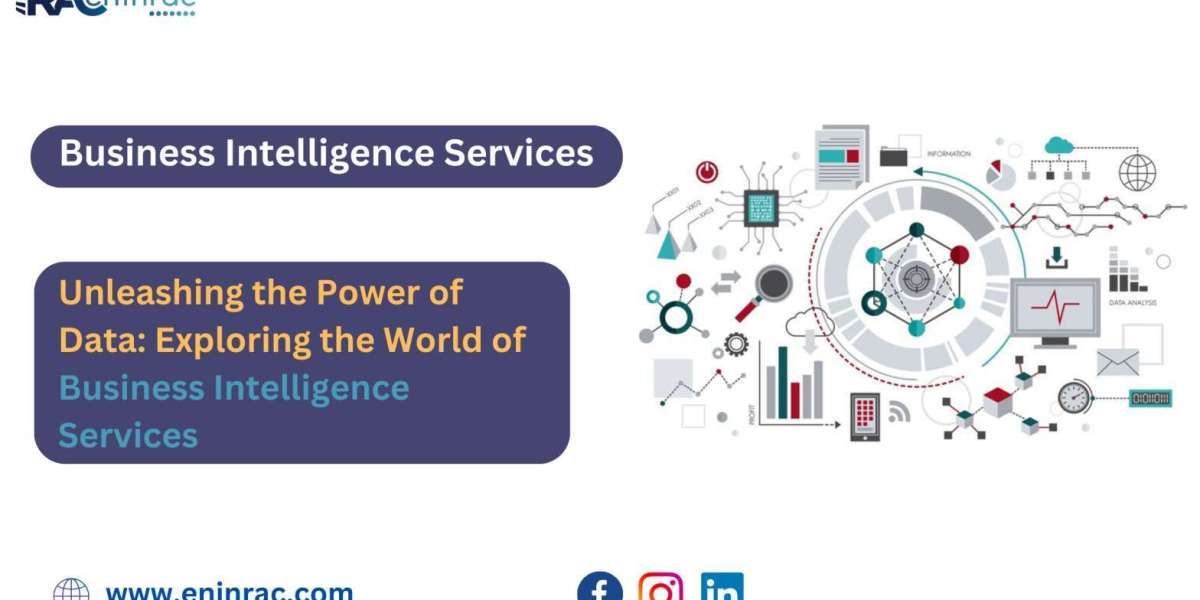In today's hyper-connected digital landscape, businesses are inundated with vast amounts of data from a myriad of sources. From customer interactions and sales transactions to social media metrics and market trends, the sheer volume and complexity of data can be overwhelming. However, within this data deluge lies a wealth of valuable insights waiting to be unlocked. This is where business intelligence (BI) services come into play, offering organizations the tools, technologies, and expertise to transform raw data into actionable intelligence. In this blog post, we will delve into the world of business intelligence services, exploring their significance, capabilities, and the transformative impact they can have on businesses of all sizes and industries.
Understanding Business Intelligence Services
Business intelligence services encompass a range of strategies, tools, and technologies designed to collect, analyze, and interpret data to support decision-making and drive business growth. At its core, BI enables organizations to gain a deeper understanding of their operations, identify trends and patterns, and make data-driven decisions to optimize performance and achieve strategic objectives.
The Components of Business Intelligence Services
Data Collection and Integration: BI services begin with the collection and integration of data from various sources, including internal systems (e.g., enterprise resource planning (ERP) systems, customer relationship management (CRM) platforms) and external sources (e.g., market research reports, social media channels). This process involves consolidating disparate data sets into a centralized repository for analysis.
Data Analysis and Visualization: Once data is collected and integrated, BI services employ advanced analytics techniques to extract insights and uncover meaningful patterns. This may include descriptive analytics to summarize historical data, predictive analytics to forecast future trends, and prescriptive analytics to recommend actions based on insights. Data visualization tools then transform complex data sets into interactive charts, graphs, and dashboards, making it easier for stakeholders to interpret and understand the information.
Reporting and Dashboarding: BI services provide customizable reporting capabilities, allowing users to generate ad-hoc reports and scheduled dashboards tailored to their specific needs and preferences. These reports and dashboards offer real-time visibility into key performance indicators (KPIs), metrics, and trends, empowering decision-makers to monitor performance, track progress towards goals, and identify areas for improvement.
Business Intelligence Platforms: Business intelligence services often leverage robust BI platforms that provide a suite of integrated tools and functionalities to support the entire analytics lifecycle. These platforms may offer self-service BI capabilities, advanced analytics features, data governance and security controls, and integration with other enterprise systems.
The Benefits of Business Intelligence Services
Business intelligence services offer a myriad of benefits to organizations across industries:
Data-Driven Decision-Making: By harnessing the power of data, BI services enable organizations to make informed, evidence-based decisions grounded in quantitative analysis rather than intuition or gut feeling.
Improved Operational Efficiency: BI services help streamline business processes, optimize resource allocation, and identify inefficiencies or bottlenecks, leading to improved operational efficiency and cost savings.
Enhanced Strategic Planning: With access to timely and accurate insights, organizations can better understand market dynamics, anticipate changes, and develop data-driven strategies to stay ahead of the competition.
Customer Insights and Personalization: BI services enable organizations to gain deeper insights into customer behavior, preferences, and needs, allowing for more targeted marketing campaigns, personalized product offerings, and enhanced customer experiences.
Risk Management and Compliance: BI services help organizations identify and mitigate risks, comply with regulatory requirements, and ensure data governance and security, reducing the likelihood of costly fines or reputational damage.
The Evolving Landscape of Business Intelligence Services
The field of business intelligence is constantly evolving, driven by advancements in technology, changing business needs, and emerging trends. Some notable developments shaping the future of BI services include:
AI and Machine Learning: The integration of artificial intelligence (AI) and machine learning (ML) algorithms into BI platforms is revolutionizing data analysis, enabling more sophisticated predictive modeling, anomaly detection, and natural language processing capabilities.
Cloud-Based BI Solutions: Cloud-based BI solutions offer scalability, flexibility, and accessibility, allowing organizations to access and analyze data from anywhere, at any time, using a web browser or mobile device.
Embedded Analytics: Embedded analytics seamlessly integrate BI capabilities into existing applications and workflows, empowering users to access insights directly within their everyday tools and systems without switching between different platforms.
Data Democratization: The trend towards data democratization aims to empower a broader range of users, including non-technical stakeholders, with self-service BI tools and capabilities, reducing reliance on IT departments and accelerating decision-making.
Choosing the Right Business Intelligence Service Provider
Selecting the right business intelligence service provider is crucial to the success of any BI initiative. When evaluating potential providers, organizations should consider factors such as:
Experience and Expertise: Look for providers with proven experience and expertise in BI strategy, implementation, and support, ideally with a track record of successful projects in your industry.
Scalability and Flexibility: Ensure that the BI solution can scale to accommodate growing data volumes and evolving business needs, with flexible deployment options (e.g., on-premises, cloud, hybrid).
Integration Capabilities: Assess the provider's ability to seamlessly integrate with existing systems and data sources, ensuring compatibility and interoperability with your organization's infrastructure.
Security and Compliance: Prioritize providers with robust data security measures, compliance certifications, and data governance policies to protect sensitive information and ensure regulatory compliance.
Support and Training: Look for providers that offer comprehensive support services, including training, technical assistance, and ongoing maintenance and updates to maximize the value of your investment.
Conclusion
In an era defined by data-driven decision-making and digital transformation, business intelligence services have emerged as indispensable tools for organizations seeking to harness the power of data to drive growth, innovation, and competitive advantage. By leveraging advanced analytics, visualization, and reporting capabilities, BI services empower organizations to gain deeper insights, make more informed decisions, and unlock new opportunities for success in an increasingly complex and competitive business environment. As businesses continue to navigate the evolving landscape of data and technology, investing in robust business intelligence services will be essential to thrive and prosper in the digital age.
More market research, advisory consulting services to discover
At Eninrac, we offer a wide range of, advisory consulting solutions, from We put ‘search’ in research to help expand your business with ease. Discover all the possibilities now.



